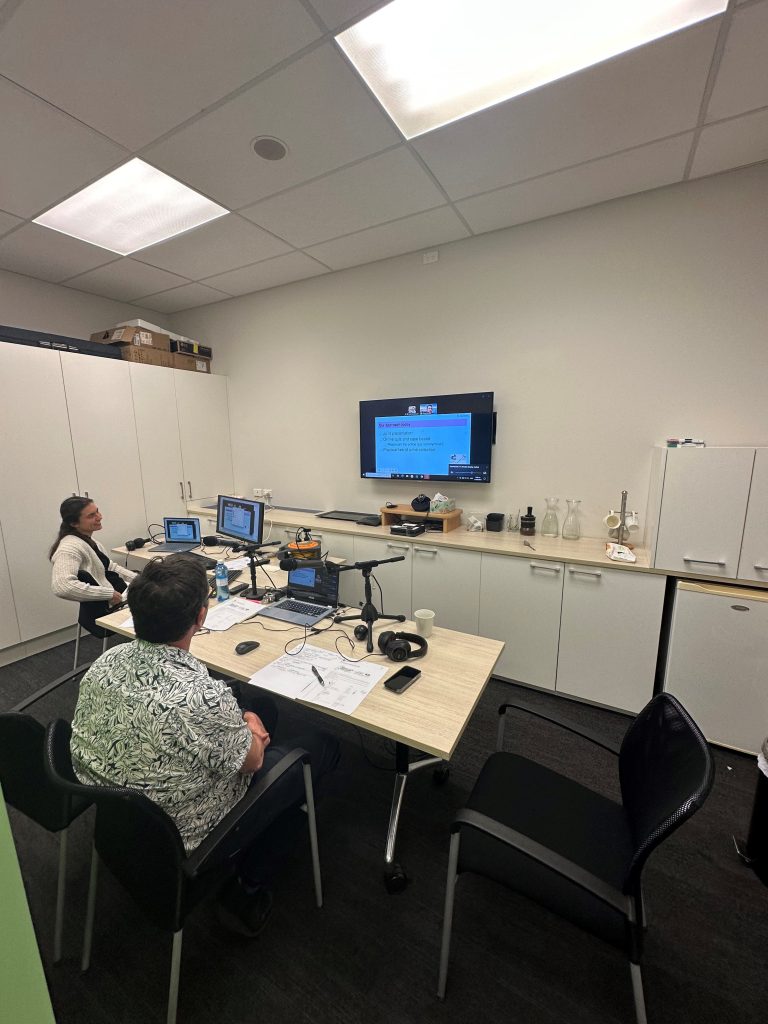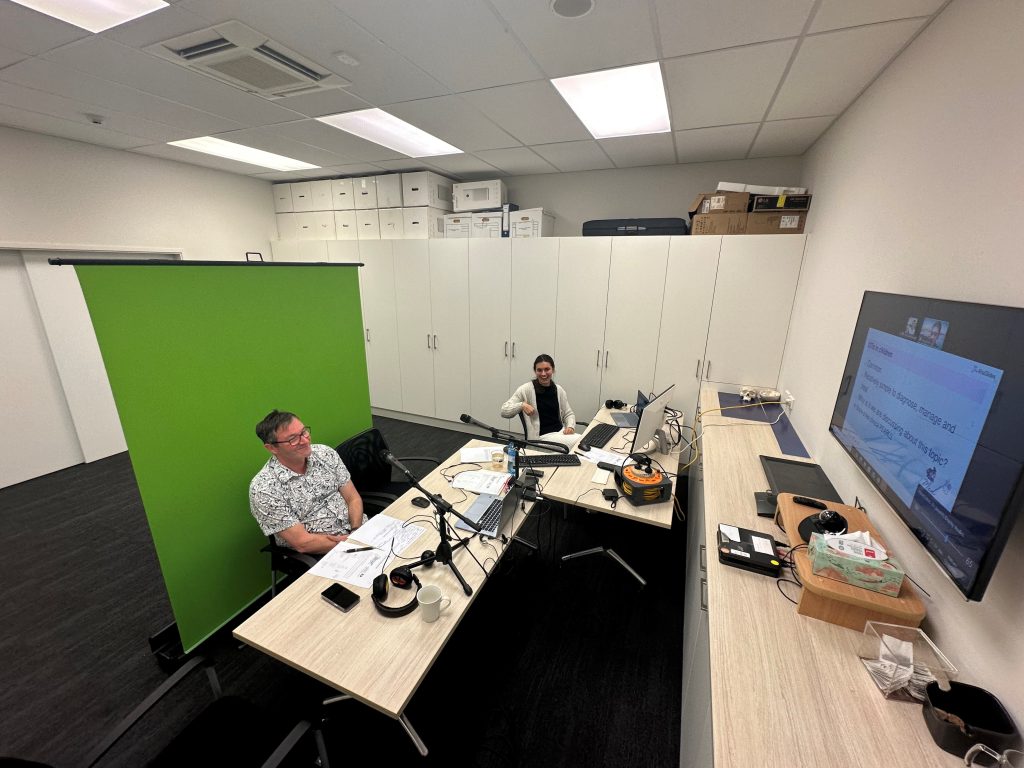For this month’s newsletter, I wish to share a brief review of the Virtual Bootcamp, held on September 13, 2025.

History
The first Bootcamp was held at the Cordis Hotel in 2019 as a one-day in-person event. The intention was to provide fast-paced, urgent care updates delivered by urgent care clinicians, hence the theme of Bootcamp was established. This was to contrast with the longer presentations delivered by external specialists at the Goodfellow Symposium. The original intention was to hold this event every couple of years, and work was underway for a virtual event to sit in the intervening year when the COVID-19 pandemic changed online medical education forever. This necessitated a virtual Bootcamp be held in 2020, and again in 2021, but we were back to an in-person event in Christchurch in 2022. We held a virtual event in 2023, before reconvening in Wellington in 2024. A report of the 2024 event can be found here. In 2026, we will be having a special in-person Bootcamp to mark the 25th Anniversary of the establishment of the scope of urgent care.
2025 Bootcamp Report
So, the Bootcamp aims to deliver short, urgent care-relevant talks, mostly provided by urgent care clinicians, and the hope is to provide a range of topics, some that might provoke thought and consideration, as well as many covering some of the more bread-and-butter topics. We rely mainly on members volunteering their time and expertise, and for that, we are very grateful.
This year, we were delighted and fortunate to have a keynote talk from Dr Ceri Battle, the creator of the STUMBL score. This is an important score for us to utilise in assessing the risk of complications in patients with blunt chest trauma. Her talk was a fantastic introduction to how the score was created and the considerations for how we use it in clinical practice. You can hear more from her in our latest podcast, in which she answers questions submitted during the Bootcamp.
Additional expert speakers were had in the form of Dr Khang Gan and Erin Carn-Bennett. Khang is an emergency paediatrician, and Erin has a background as an ED paediatric nurse. Together, they run the MedSim Solutions company that delivers in-house resus simulations, but for Bootcamp, they talked about UTI in children, which included tips and tricks for obtaining a sample.
As it was World Sepsis Awareness Day, we were lucky to have New Zealand’s only CNS in Sepsis, Cam Howard, who provided an update on sepsis, including the newly released national sepsis pathways.
The remaining talks were given by a variety of clinicians who work in urgent care, and we were delighted by the variety of speakers and topics. We had urgent care Fellows, registrars, Nurse Practitioners, and Extended Care Paramedics, as well as a Physician Associate. Several speakers had a variety of clinical backgrounds, including sports medicine and rural health and Sarah Clarke’s talk demonstrated her work for the NZ Medical Assistance Team, which was both eye-opening and inspiring. Other topics ranged from NSAIDs in tendon injury, Achilles tendon rupture, and nasal fracture management, through to improving ventilation in clinics to reduce the spread of airborne disease. We heard about intra-articular local anaesthetic for shoulder relocations, how to approach a pre-verbal child with a sore arm, and how AI has been helping one doctor in their consultations and teaching. We heard about some of the developments and barriers of urgent care in Australia, the use of Advanced Practitioners in urgent care and had a run-through of some of the often overlooked considerations when suturing wounds. And we had an update on the newly developed work-based assessments and learned about the inequities and bias surrounding outcomes for women presenting with ACS.
Overall, this was a varied and interesting programme and had something for everyone, no matter your stage of training or experience within the UC world.
A thought on CPD
With another virtual Bootcamp under our belt, and as we look forward to next year’s in-person event, I wanted to close out this report with a thought on CPD. CPD is necessary, not just because the MCNZ, or the College, says so, but because it keeps us current and qualified within the ever-changing clinical world in which we live. It helps us to engage with colleagues and has the potential to spark an interest in a new area of medicine for you. It can also help to prevent burnout and fatigue within your day-to-day work life. It is a very important part of your development as a clinician, and I hope that our recertification programme has enough flexibility to enable you to direct your CPD requirements towards activities that benefit you and help your practice.
When attending a CPD event, like the virtual Bootcamp, likely, a lot of the information provided will not be new to you. So much of CPD, in fact, is revisiting old knowledge, and it is therefore important that we can identify new knowledge at the same time as reviewing and reflecting upon old. This active reflection is vital when engaging with any CPD activity, and I would encourage you all to refrain from passive learning, in which you allow knowledge to be passively delivered, akin to a car being filled at a petrol pump. For topics which you feel you know well, during these presentations, an active, reflective approach helps you test that prior knowledge, challenge preconceptions and presuppositions, and often, in my experience, find a new nugget of information for which you were previously ignorant. If, ultimately, you find there to be no new information found, then you will have tested and resolved that knowledge such that it will be present in your recall memory banks for the next clinical scenario in which you are called upon to act on such a case.
Thank you
I would like to thank our main sponsor for Bootcamp, the Medical Protection Society (MPS). I would also like to thank Enovis and Tamaki Health for their ongoing support. I am also grateful to the Sepsis Trust for providing Cam Howard to talk.
I am indebted to all the speakers for their time and expertise, and I personally learned much from listening to their talks.
I would like to thank the Office team of Adrian Metcalfe (CEO), Kushani, Cleo, Alex, and Dave for their help in organising this event. You can see in the pictures below that we had our own little studio set up to run the Bootcamp, and there were many plates spinning to keep the talks on time, and except a few technical glitches which were overcome, we ran a smooth ship. Despite rehearsals and lots of planning, these technical blips always happen, and the fact that we were able to navigate them on the day is a testament to the backstage efforts by all.
Finally, thank you to all who attended on the day, or who are watching the recordings on catch-up. If you wish, you can still purchase a ticket, which will give you access to all the talks and Q+A. Email admin@rnzcuc.org.nz if you would like to buy a ticket.
See you all in 2026
Ngā mihi nui,
Dr. Guy Melrose – Director of Professional Development


